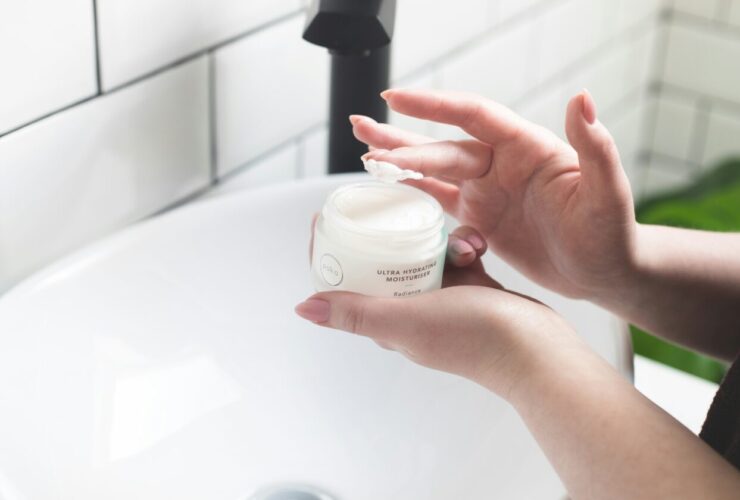Our dietary choices are influential factors in pursuing a complexion that exudes clarity and radiance. As the popularity of plant-based diets continues to soar, many individuals ponder over a pressing question: Does plant-based protein contribute to acne? Let’s embark on a journey through the realm of scientific understanding to unravel the truth behind this inquiry and decipher the intricate interplay between protein sources and skin health.
The answer is a definitive no—plant-based protein does not trigger acne. Unlike its dairy-derived counterpart, whey protein, which has been associated with skin blemishes, plant-based protein offers a safer avenue for those wary of acne breakouts. Whey protein possesses the propensity to elevate insulin-like growth factor 1 (IGF-1) levels, thereby stimulating sebum production and fostering the formation of clogged pores—a breeding ground for acne. Conversely, plant-based proteins, such as pea protein, boast a hormone-free composition and exhibit a lower glycemic index, mitigating the risk of acne triggers. Thus, integrating plant-based protein into your dietary regimen can foster clearer, healthier skin sans the threat of acne.

Delving deeper into the underlying mechanisms, whey protein emerges as the primary culprit behind acne woes. Originating from milk, whey protein garners favor among fitness enthusiasts for its muscle-building prowess. However, its adverse effects on skin health stem from its ability to amplify IGF-1 levels, instigating sebum overproduction and subsequent acne eruptions.
In contrast, plant-based protein is a beacon of hope for acne-prone individuals seeking refuge from dietary triggers. Pea protein is a standout option due to its remarkable attributes. Unlike whey protein, which may harbor hormones from dairy sources, pea protein derives exclusively from plants, ensuring a hormone-free protein alternative. Moreover, plant-based proteins tout a lower glycemic index than their dairy counterparts, curbing blood sugar spikes and mitigating acne risk factors.
Furthermore, pea protein harbors natural anti-inflammatory compounds that assuage inflammation—a pivotal driver of acne progression. Pea protein plays a crucial role in nurturing clearer, healthier skin by assuaging existing lesions and thwarting the onset of new breakouts.
Venturing beyond pea protein, many alternative plant-based protein sources beckon exploration. Hemp, brown rice, and soy protein showcase diverse nutritional profiles, enriching one’s dietary landscape and fortifying skin health.
Embracing plant-based protein can be a smooth endeavor. Whether opting for protein powders, snacks, or whole food sources, prioritizing quality and diversity remains paramount. Seek products devoid of additives and preservatives, and experiment with assorted flavors and formulations to unearth the ideal fit for your palate and preferences.
However, it’s imperative to recognize that protein intake constitutes one facet of the broader skincare equation. Adopting a holistic approach to skincare necessitates addressing multifaceted factors beyond diet—including stress management, hydration, and meticulous skincare routines. By harmonizing nourishing plant-based proteins with mindful lifestyle choices, individuals can cultivate clearer, healthier skin from within.
In conclusion, the discourse surrounding whether plant-based protein precipitates acne unequivocally leans towards a negative stance. Opting for hormone-free, low glycemic index alternatives like pea protein empowers individuals to relish the muscle-building benefits of protein sans compromising skin health. Remember, the journey to radiant skin transcends mere dietary choices—it embodies a holistic voyage encompassing lifestyle decisions, skincare rituals, and mindful nourishment.
References
Can the right diet get rid of acne? (2016). Aad.org. https://www.aad.org/public/diseases/acne/causes/diet
NIAMS. (2016, September). Acne. National Institute of Arthritis and Musculoskeletal and Skin Diseases. https://www.niams.nih.gov/health-topics/acne
Pappas, A. (2009). The relationship of diet and acne. 1(5), 262–267. https://doi.org/10.4161/derm.1.5.10192
Was this helpful?

Joseph Emb, RDN
Founder of StyleVitally.com | Registered Dietitian & Wellness Advocate
What I Cover:
I’m passionate about connecting nutrition science and everyday wellness to help people live healthier, more vibrant lives. I write about evidence-based nutrition, mindful eating, sustainable lifestyles, and holistic well-being at StyleVitally.com.
My Background:
The University of Texas in Austin, where I earned my Dietetics diploma, laid the groundwork for my nutrition and health career. My training and hands-on experience taught me the science and art of using nutrition to enhance health and well-being.
Professional Journey:
I’m an RDN with lots of experience. I’ve helped people seeking tailored nutritional recommendations in clinical settings and community outreach programs. My constant learning and professional development ensure that my recommendations are always based on the latest evidence.
Ethical Commitment:
My practice prioritizes integrity. My content is transparent and objective, following the most significant ethical standards. I can give my audience unbiased advice because I’m not affiliated with food businesses or industry associations. I want to help people make informed health decisions that match their values and ambitions.
Join Me on the Wellness Journey:
Join me on the path to vitality and well-being, whether facing nutritional issues, seeking sustainable lifestyle changes, or simply wanting a better, happier you. We’ll discover how diet, mindfulness, and holistic well-being can maximize your potential.









